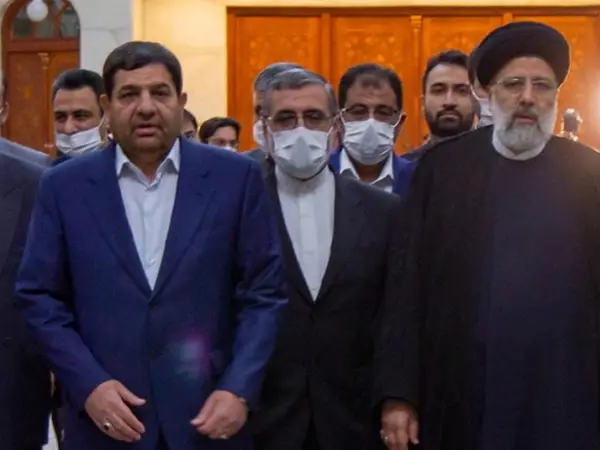An Iranian lawmaker says the Raisi administration instils despair in society as it refuses to acknowledge its mistakes and insists on working with incompetent managers.
Reza Hosseini Ghotbabadi, a lawmaker, charged that the administration's behavior contradicts Supreme Leader Ali Khamenei's call for giving hope to the society.
He added that some of Raisi's aides and ministers lack the managerial experience for running the affairs of the state. He further charged that blaming all the country's problems on the previous governments rather than accepting responsibility for the shortcomings is unethical.
He said Raisi should have been familiar with the issue of financial corruption as the country's former Judiciary Chief and should have prevented wrongdoing while he was in that capacity. Meanwhile, he warned that the next government in Iran might also blame Raisi and his cabinet for the country's problems.
Ghotbabadi said elsewhere that Raisi and his aides believe themselves to be the only wise individuals in Iran and that they are not prepared to consult with others including the parliament about the affairs of the state.
"The government makes all decisions secretly among insiders. But chaos will continue in Iran as long as the administration refuses to work with the parliament.”
Meanwhile, in similar statements, Rasoul Montajabnia, the secretary general of the pro-reform Republicanism Party said in an interview that some Iranian officials see themselves as the essence of the political system and impose a minority's views on everyone. "They believe that they are the system and insist that protecting the system is the most important thing to do," he said.
Referring to former Prime Minister Mir Hossein Mousavi and Former President Mohammad Khatami's statements about the need for essential changes in the system, Montajabnia said differentiation should be made between the regime and those who are or have been working within this system.
He added that the mistakes and naivety of radicals within the system has weakened the constitution and tarnished the image of the regime. Nonetheless, he said that in the 1990s he had opposed the idea of changing the system. "Of course, the system needs to be reformed but not all of the current problems have their roots in the nature of the system," Montajabnia said.
Until recently this has been the position of all reformists who have tried for 25 years to reform the Islamic Republic. However, Mousavi and a few hundreds of other reformists have come out demanding constitutional change that could effectively put an end to the Islamic Republic in its current form.
In another development, responding to hardliners such as the editor of Kayhan daily, who have said that people's participation in the revolution anniversary rallies on February 11 show that no change should be made in the constitution, the former chairman of the Tehran City Council Mohsen Hashemi said that those who took part in the revolution anniversary rallies do not represent the majority of Iranians.
He warned: "Economic, social and cultural indicators point to an alarming state, so, please stop putting more holes in the boat!" He pointed out that in a city like Tehran even if 500 thousand people turned up for the rallies, this is hardly five percent of the city's population. So, we need to consider the demands and views of the other 95 percent."
"Another point to consider is that the views of that five percent should not be taken as the entire nation's support for government policies," Hashemi added. Meanwhile he warned that a majority of Iranians are living under the poverty line, and this means that they are being drowned in economic problems.
